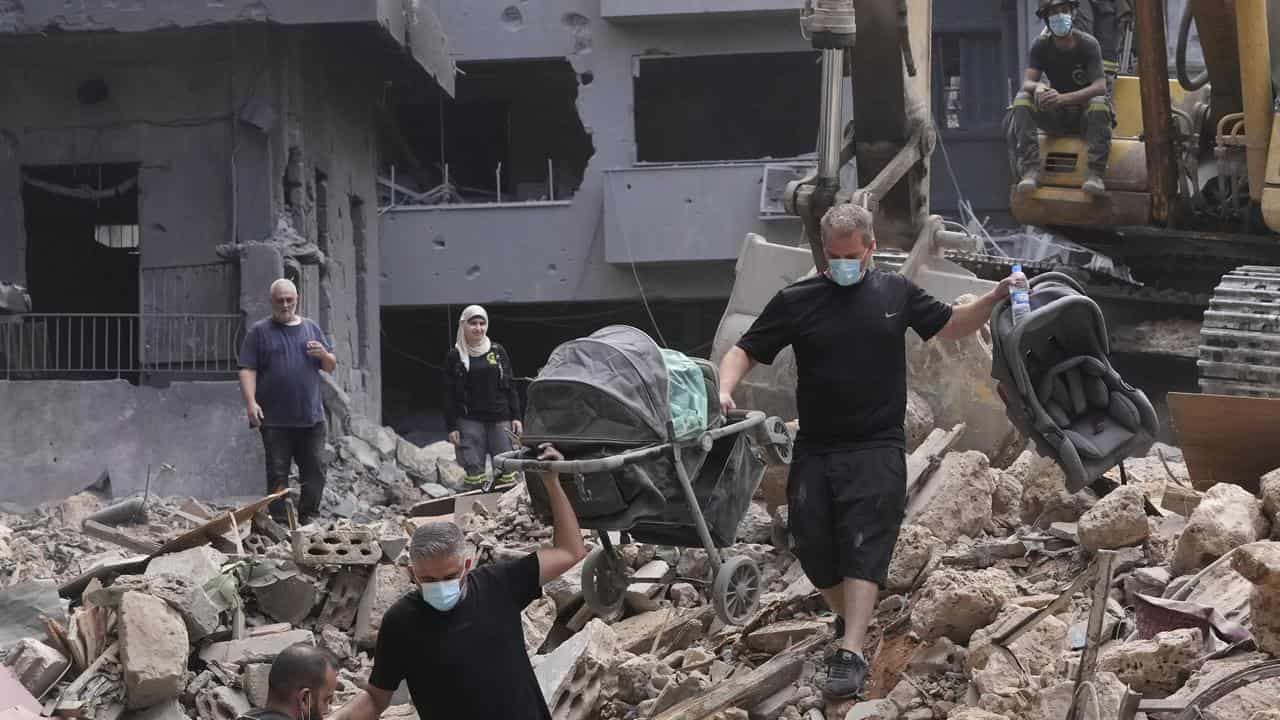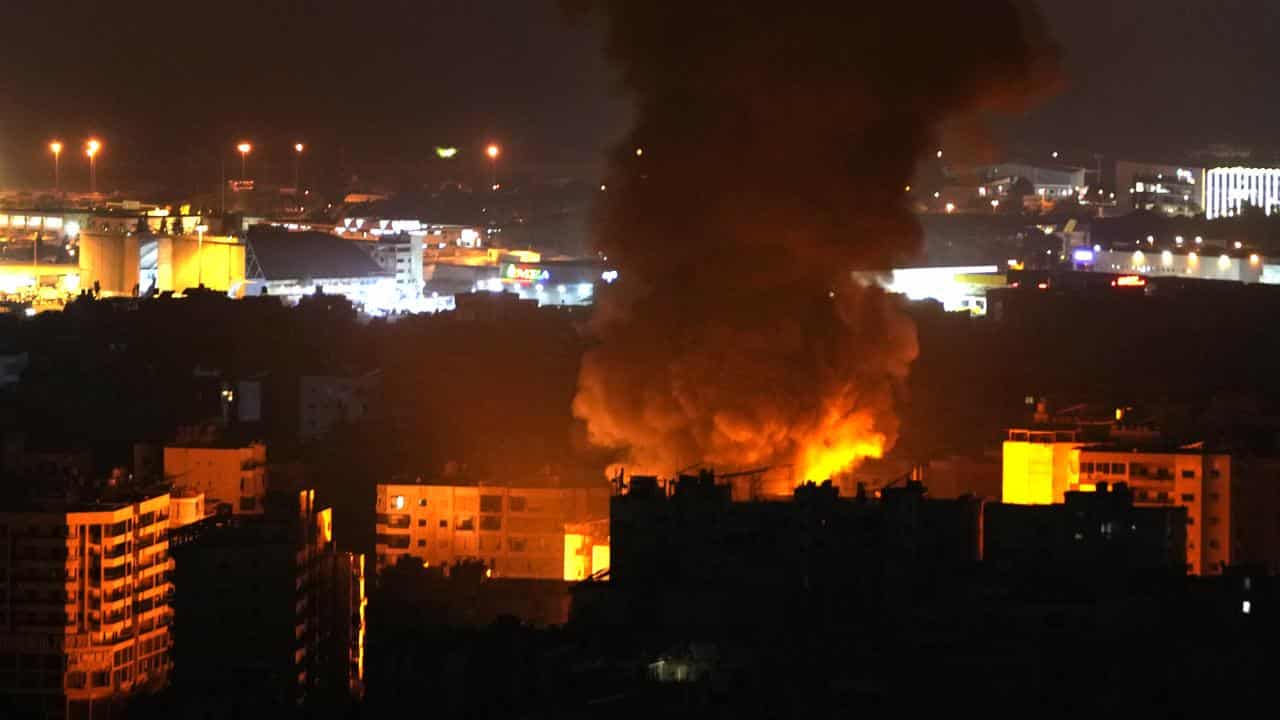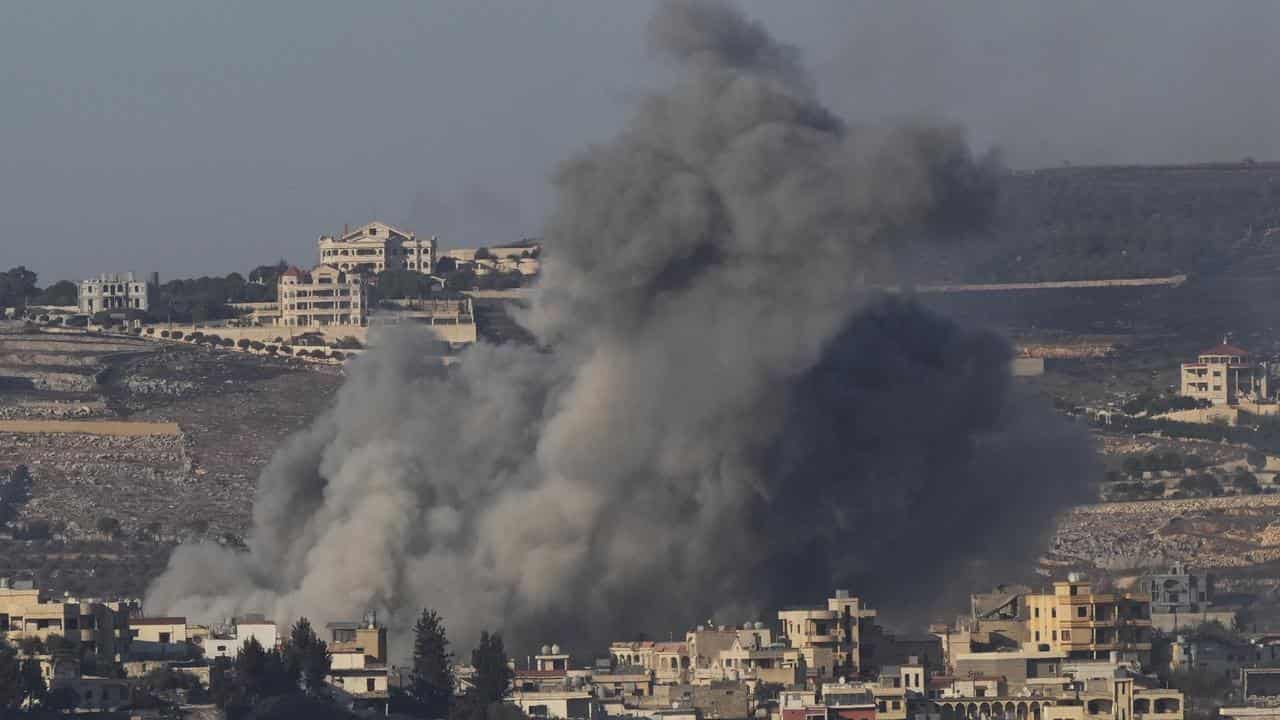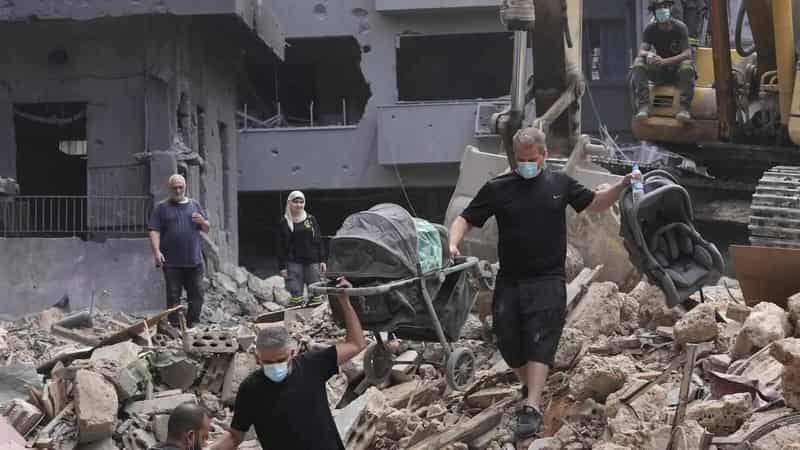
An Israeli air strike on the municipal building in Nabatieh, a major town in southern Lebanon which serves as a provincial capital, has killed at least six people including the mayor, two security sources say.
The strike on Wednesday came despite US concerns about rising death tolls and fears of a wider regional escalation.
Hours earlier at least one Israeli strike hit Beirut's southern suburbs, Reuters witnesses said, after the US said it opposed the scope of Israeli attacks in Lebanon's capital.
Reuters witnesses heard two blasts and saw plumes of smoke emerging from two separate neighbourhoods. It came after Israel issued an evacuation order early on Wednesday, which mentioned only one building.

The Israeli military has in recent weeks carried out strikes on Beirut's southern suburbs, the stronghold of Iran-backed Hezbollah, without advance warnings, or with a warning for one area while striking more broadly.
The Israeli military said it conducted a strike on an underground Hezbollah weapons stockpile in the southern Beirut suburb of Dahiyeh.
"Prior to the strike, numerous steps were taken to mitigate the risk of harming civilians, including advancing warnings to the population in the area," the Israeli military said.
Israeli military evacuation orders now affect more than one-quarter of Lebanon, according to the UN refugee agency, two weeks after Israel began incursions into the south of the country that it says are aimed at driving back Hezbollah.
Some Western countries have been pushing for a ceasefire between the two neighbours, as well as in Gaza, though the United States says it continues to support Israel and was sending an anti-missile system and troops.
On Tuesday, State Department spokesperson Matthew Miller said the US had expressed its concerns to Prime Minister Benjamin Netanyahu's administration on the recent strikes.
"When it comes to the scope and nature of the bombing campaign that we saw in Beirut over the past few weeks, it's something that we made clear to the government of Israel we had concerns with and we were opposed to," he told reporters, adopting a harsher tone than Washington has taken so far.
Israel has also come under scrutiny because of its dealings with the UN peacekeeping force UNIFIL in south Lebanon.
Since an Israeli ground operation against Hezbollah militants began on October 1, UNIFIL positions have come under fire and two Israeli tanks burst through the gates of one of its bases, the UN says. Five peacekeepers have been injured.
European Union countries that contribute have no intention of pulling back despite Israeli calls to do so, Austrian Foreign Minister Alexander Schallenberg said.
Sixteen EU countries, including Austria, contribute to UNIFIL and the recent incidents have sparked widespread alarm among European governments.
On Sunday, Netanyahu called on the UN to withdraw UNIFIL "from Hezbollah strongholds and from the combat zones".
Israel has not indicated it would reign in its military campaigns in Beirut, south Lebanon or Gaza.
The last time Beirut was hit was on October 10, when two strikes near the city centre killed 22 people and brought down entire buildings in a densely populated neighbourhood.
The Middle East, meanwhile, has been on edge since Iran attacked Israel with a barrage of missiles on October 1 after a similar large-scale operation in April. Israel has promised to retaliate.

Iran's allies in its "Axis of Resistance" to Israeli and US interests - Lebanon's Hezbollah, Yemen's Houthis and armed groups in Iraq - have staged attacks in the region in support of Hamas in the Gaza war, complicating efforts to ease tensions.
Iranian Foreign Minister Abbas Araqchi is visiting Jordan, Egypt and Turkey as part of Tehran's diplomatic reach-out to countries of the region "to end genocide, atrocity and aggression", the Iranian foreign ministry's spokesperson said on Wednesday in a post on X.
Israel has been turning up the heat on Hezbollah since it began incursions into Lebanon after killing Hezbollah leaders and commanders, including its veteran secretary-general Hassan Nasrallah last month in the biggest blow to the group in decades.
With diplomatic efforts stalled, the fighting continues.
Israeli strikes in Lebanon have killed at least 2350 people over the last year and left nearly 11,000 wounded, according to the health ministry, and more than 1.2 million people have been displaced.
The toll does not distinguish between civilians and combatants but includes hundreds of women and children.
Around 50 Israelis, both soldiers and civilians, have been killed in the same period, according to Israel.
The figures underscore the heavy price Lebanese are paying as Israel tries to destroy Hezbollah's infrastructure in their conflict, which resumed a year ago when it began firing rockets at Israel in support of Hamas at the start of the Gaza war.









